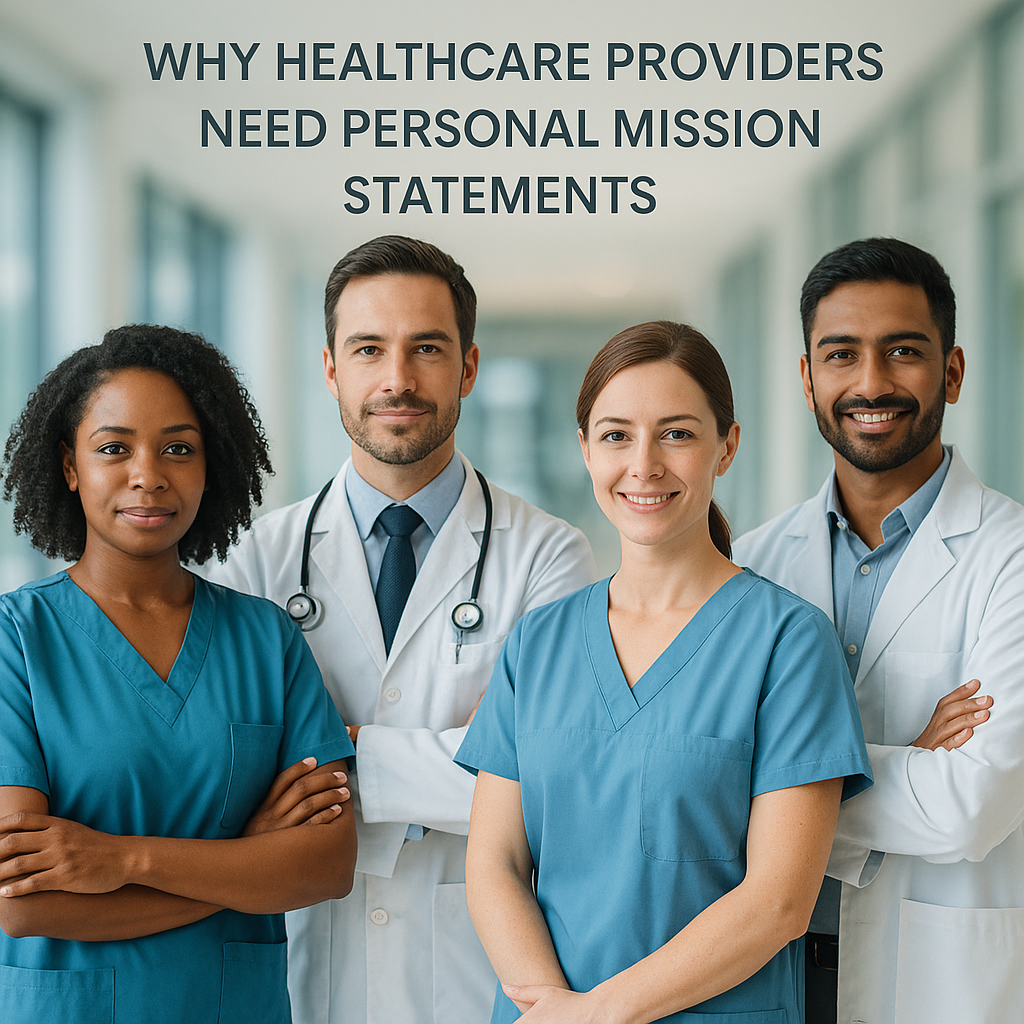
Why Healthcare Providers Need Personal Mission Statements
Most doctors graduate without direction, support, or real vision.
I see this constantly in my work with healthcare professionals. Everyone comes out wanting to help people, but what does that truly mean? To what depth? More importantly, how much are you willing to give of your time, energy, money, and focus to achieve that?
When healthcare providers drift along without clear mission, they get results that follow suit.
The signs are unmistakable. As soon as you call or enter their practice, you can see it. The level of confidence, use of knowledge, systems, and overall function tell the story immediately.
Talk to these doctors and they tend to be general with their advice. Unsure. They speak in vague terms and don't lead conversations or ask good questions.
Most telling of all: they suggest patients "try" a treatment plan.
Patients want results. Not attempts at results.
The Foundation That Changes Everything
Of the four pillars that transform practices - intentional happiness, disciplined routines, fear confrontation, and authentic mission - I've found authentic mission has the most immediate impact on patient care quality.
You cannot hit a target you cannot see. You need to see it physically or in your mind to achieve it.
Most healthcare providers know what to do clinically. But their systems and support staff don't align with any clear vision or effort. This creates a breakdown in execution that has nothing to do with medical knowledge.
The problem compounds when doctors get busy. They stop taking time to reaffirm training or standards with their teams. Physicians now spend 28 minutes more daily in electronic health records than before COVID, seeing only 10 patients in what used to be 24-patient days.
This creates a vicious cycle. The busier they get, the more their systems break down, making them less effective overall.
Winning the Morning Changes Patient Outcomes
I start my day by winning my morning. I take care of my body, mind, and mission. I focus on what truly matters, set my goals for the day, and invest in myself FIRST.
Only after that do I open my time to others.
This sounds counterintuitive for healthcare providers trained to put patients first. But without taking care of yourself first, you quickly spiral into burnout, poor decision making, stress, and possible failure.
My routine starts at 5 AM with 20-30 minutes of movement. No social media, emails, or negative input. I listen to positive podcasts, YouTube clips, or audiobooks. I set my goals and gratitudes, then go to the gym for 30-45 minutes.
After 1-2 hours for myself, I check emails and texts.
The morning sets the tone for the entire day. If you let negative inputs come in early, get behind due to distractions, or spend too much time on what can go wrong, you easily forget what can go RIGHT.
When you start your day putting out fires, you stress your nervous system and health. Nearly half of physicians still experience burnout symptoms, even as rates have improved from 56% in 2021 to 45% in early 2024.
Confronting the Fear of Delegation
The biggest fear I see among healthcare providers is losing control or losing patients. They're afraid that setting boundaries means patients will think they don't care.
There's also deep fear of delegation. "Nobody can do it as well as I can." They're scared to hire, scared to train staff properly, scared to invest in systems because what if it doesn't work?
But when you're burned out and reactive, you're not serving patients at your best anyway.
The fear of change keeps providers stuck working harder instead of smarter. They're afraid to step back and work ON their practice instead of just IN it because they think everything will fall apart without constant involvement.
AI can free up to 70% of time currently spent on routine administrative tasks. This directly addresses the systems breakdown that happens when busy doctors can't maintain standards.
The Integration That Creates Sustainable Success
Once you start taking care of yourself first, you can give more energy, focus, and time to others. When you're healthy, it creates a better experience for you, your staff, and your patients.
The four pillars work together systematically. Authentic mission provides direction. Morning routines create the discipline to maintain that direction. Fear confrontation enables the growth necessary to fulfill the mission. Intentional happiness sustains the energy required for all three.
Patients come to healthcare providers for guidance and direction. Doctors need that same clarity in their business and practice systems.
When you can see your target clearly and align your daily actions with that vision, everything changes. Your confidence increases. Your recommendations become definitive rather than tentative. Your team operates with clear standards.
Most importantly, you transform from someone who helps patients "try" to get better into someone who delivers the results they actually want.
